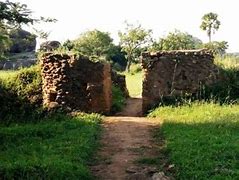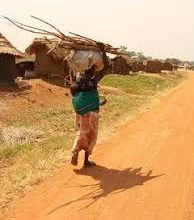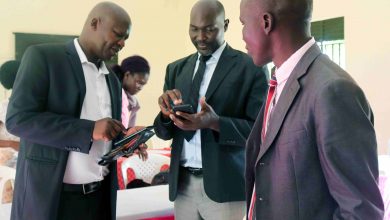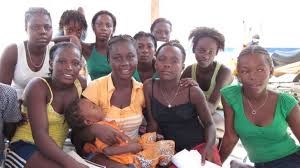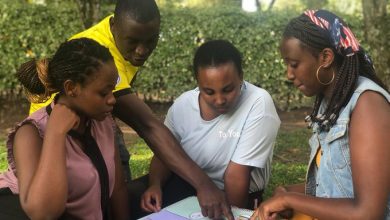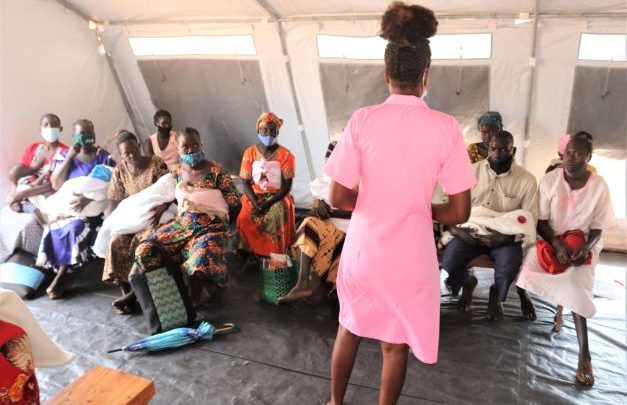
CulturesHealth
Ugandan refugees are attempting to improve their family’s lives through family planning
"It was difficult to flee with the little children, one of whom was suckling breasts." We endured challenges while walking and running hundreds of kilometers. Bayoa, who was 23 at the time, adds, "I never imagined we'd make it alive."
By Judith Amusugut
Refugee women from South Sudan are overcoming cultural barriers and stigma to access new family planning services in Uganda.
Stella Bayoa, 30, and her family of three, including her husband, fled South Sudan. It was June 2016, and their South Sudanese town had recently been assaulted. They travelled for four days from Eastern Equatoria to Uganda’s Pagirinya refugee camp.
“It was difficult to flee with the little children, one of whom was suckling breasts.” We endured challenges while walking and running hundreds of kilometers. Bayoa, who was 23 at the time, adds, “I never imagined we’d make it alive.”
“We persevere in the face of adversity.” My third baby, who was four months old at the time, was still nursing. Although we faced the same difficulties as adults, the other two youngsters were weeping due to a lack of sleep, hunger, and dehydration.”
Bayoa sought family planning services at Uganda’s Pagirinya refugee camp to ensure she didn’t have any more children before settling, as well as to provide adequate food and shelter for her family.
“Taking care of the three children is still a problem in this camp.” “We don’t have enough money to cure them, feed them, or provide basic essentials,” Bayoa explains from the shelter of the Pagirinya refugee camp in Adjumani, northern Uganda. “We can’t afford to add any more children to this predicament right now.”
According to a study published in 2019 by the Liverpool School of Tropical Medicine, more than 40% of women in northern Ugandan refugee communities wanted to use contraception but couldn’t because supplies were scarce.
“Most health facilities in or near refugee camps lack the capacity to provide integrated sexual reproductive health and rights services, including family planning,” Annet Kyarimpa, safe motherhood manager at Reproductive Health Uganda, stated (RHU). Those seeking assistance must frequently journey considerable distances or wait for groups such as RHU to provide assistance.
Bayoa and other women from Adjumani’s 19 refugee settlements created a group of women last year to preach the gospel and the benefits of family planning in the host towns and refugee camp. They disseminated messages encouraging women and men to participate in various family planning strategies. The campaign is being implemented by Reproductive Health Uganda (RHU) with support from the Danish International Development Agency (DANIDA), Ministry of Foreign Affairs (MoFA) to enhance family planning uptake among vulnerable and marginalized populations.
South Sudanese refugees despise and reject family planning due to a variety of socio-cultural causes. This has over the years led into bigger families. South Sudanese women have an average of five (5) children. Only ten percent of married or in a relationship women aged 15 to 49 utilize any sort of family planning. According to the United Nations Population Fund, this is the lowest rate in East and Southern Africa, and many women have their first child while still in their teens.
“I became pregnant at the age of 17 and continued to give birth and breastfeed until we were forced to flee South Sudan.” “There was no time to rest or space out the children,” Bayoa explains.
Uganda presently has over 1.4 million refugees, with over 900,000 from South Sudan, according to the Office of the Prime Minister in Uganda.
According to the United Nations High Commission for Refugees (UNHCR) Women and children make up over 85% of the more than 240,161 South Sudanese refugees in Adjumani area.
Bayoa was ecstatic when she received free contraception, which she uses every twelve weeks, from the Sayana press, and she now advocates for other women to use family planning. The benefit is that she can give it herself when she needs it, rather than relying on a health professional.
She made the decision to join in the program with her husband Moses Adraku. “With the current challenge of raising, feeding, and educating these youngsters,” says the author. I’m unemployed. I work on a part-time basis. But here in Pagirinya camp, I don’t have enough land to farm. To support the family, I have to clean people’s houses, dig and collect fuel and water,” adds Adraku.
As of January 2022, the district health office in Adjumani reports that at least 6,000 women are taking Sayana Press and using other long-term family planning methods such as bi-tubal ligation, Jadelle, Intra Uterine Device (IUD), and male sterilization.
The RHU – DANIDA financed project in Adjumani area, according to Nicholas Otto, RHU Branch In-Charge, has resulted in more men and women obtaining integrated family planning services. 21,711 people mostly women have accessed integrated family planning services in the last one year at RHU.
“This is a fantastic accomplishment,” he says. “These are refugee women and men who have never accepted or used family planning services in their life due to unfavorable cultural views, a lack of access, or other factors.”
Kyarimpa urges the Ugandan government to spend more on integrated sexual and reproductive health and rights, beginning with the allocation of the $5 million pledged each year at the International Conference on Population and Development (ICPD) in 2021.
She claims that if the government kept its word, more integrated family planning products would be available in public and private institutions, including those in refugee camps.

